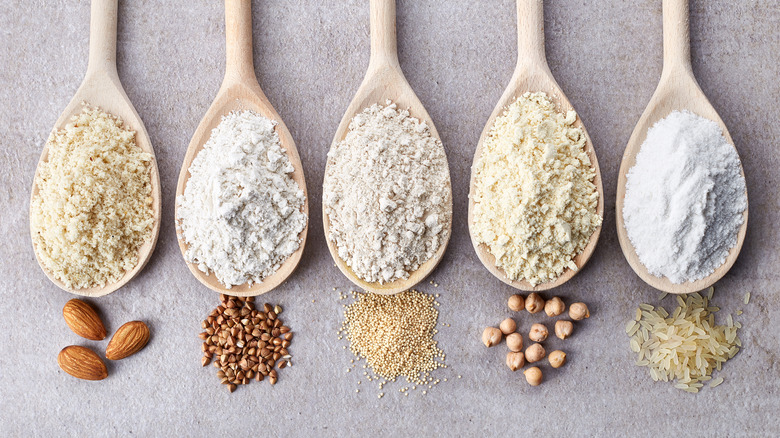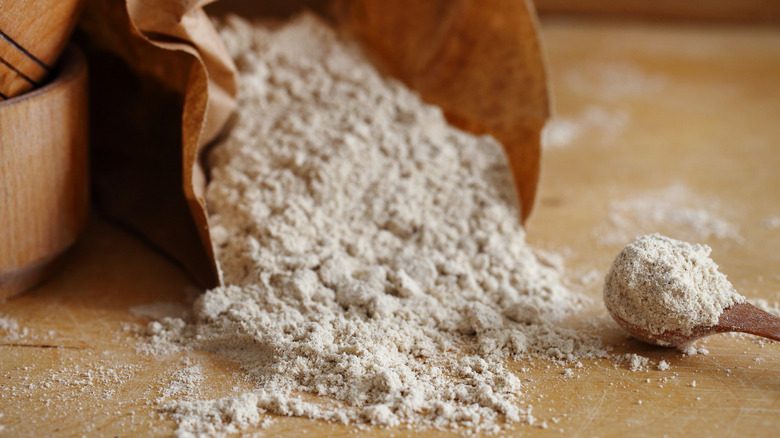What Is The Healthiest Type Of Flour?
With so many alternatives to all-purpose flour on the market today, you may be wondering which is the healthiest. When considering the health profiles of flours, one of the biggest considerations is refinement. More refined, highly-processed flours like all-purpose flour are stripped of nutrients during the production process. What starts as wheat undergoes a process in which the bran and germ are removed. These components of wheat are the main sources of nutrition (via ScienceDirect).
Additionally, all-purpose flour is highly-caloric, high in refined carbohydrates, and has almost no protein, fiber, or healthy fats. In fact, white flour is thought to be a leading contributor to diet-related health epidemics like obesity, diabetes, hypertension, and cardiovascular disease (via WebMD). Therefore, less refined flours tend to reign supreme on the health spectrum. Common types of flours within this category are grain-based flours, whole wheat flours, and nut flours. Let's consider the nutritional values of each.
Nutrient-dense flour options
Nutrient-dense flour options can come from almond, coconut, rice, oat, wheat, and quinoa (via WebMD). For those who eliminate grains from their diet but include nuts, almond and coconut flour are great options. While coconuts aren't technically nuts, many people who are allergic to nuts are also allergic to coconut (via Johns Hopkins Medicine). Almond and coconut flours contain healthy fats and fiber, which help maintain optimum blood sugar levels. Additionally, almond flour is a great source of magnesium and vitamin E.
On the flip side, if you exclude nuts but eat grains, then rice, oat, or wheat flour may work best. Rice flour is used in many cultures, is gluten-free, and is a good source of fiber, protein, and vitamin B6. Oat flour, which is also gluten-free, is rich in protein, fiber, iron, potassium, and calcium. Wheat flour wouldn't be an option for those who are gluten-intolerant, but for those who consume gluten, wheat flour can be a healthy choice. The wheat seeds remain intact during processing and are ground into flour, preserving important nutritional components like fiber, iron, and potassium (via Healthline). Because baking is just as much of a science as it is an art, try experimenting. Different recipes may benefit from more neutral flours like oat and rice, or from a more nutty profile, like almond flour.


